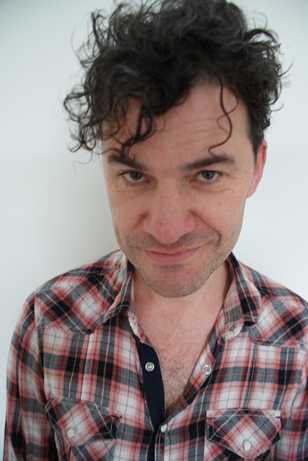UPDATE III (2016)
 Mark Cousins is a documentary filmmaker, author, curator and wanderer. The creator of The Story of Film: An Odyssey, The Story of Film and Children which premiered at Cannes in 2013, he has directed documentaries on subjects ranging from Neo-Nazism to Iranian cinema. He has also co-directed four innovative film events, and the 8 ½ Foundation with Tilda Swinton. Mark is an Honorary Doctor of Letters at the University of Edinburgh. This interview was conducted between 2014 and 2015 in the form of an intermittent but prolonged electronic conversation on the relationship between poetry and cinema. Mark was frequently globe-trotting all this while as the time stamp on his responses indicate.
Mark Cousins is a documentary filmmaker, author, curator and wanderer. The creator of The Story of Film: An Odyssey, The Story of Film and Children which premiered at Cannes in 2013, he has directed documentaries on subjects ranging from Neo-Nazism to Iranian cinema. He has also co-directed four innovative film events, and the 8 ½ Foundation with Tilda Swinton. Mark is an Honorary Doctor of Letters at the University of Edinburgh. This interview was conducted between 2014 and 2015 in the form of an intermittent but prolonged electronic conversation on the relationship between poetry and cinema. Mark was frequently globe-trotting all this while as the time stamp on his responses indicate.
[ Poetry in Cinema : A conversation with Mark Cousins ]

William Allegrezza edits the Moria Books and the e-zine Moss Trill. He teaches at Indiana University Northwest. He has previously published many poetry books, including In the Weaver's Valley, Ladders in July, Fragile Replacements, Collective Instant, Aquinas and the Mississippi (with Garin Cycholl), Covering Over, and Densities, Apparitions; two anthologies, The City Visible: Chicago Poetry for the New Century and La Alteración del Silencio: Poesía Norteamericana Reciente; seven chapbooks, including Sonoluminescence (co-written with Simone Muench) and Filament Sense (Ypolita Press); and many poetry reviews, articles, and poems. He also edited The Salt Companion to Charles Bernstein. He founded and curated series A, a reading series in Chicago, from 2006-2010. In addition, he occasionally posts his thoughts at P-Ramblings. His book Step Below: Selected Poems 2000-2015 recently came out from Meritage Press.
An Aside on the Poems
I don’t typically say much about my poetry, for I believe it should stand on its own and that the reader has an active role in interpretation. For my part, my poetics practice has begun to incorporate more personal elements than I used when I began writing poetry. When I started, I wanted poetry to push the reader outside of standard language patterns into more individual intellectual spaces to fight in a small way against the dehumanizing tendencies of modern Western culture. Now, my personal insights have started to blend with my reoccurring themes of language, meaning, and sound. I still think the lyric is a place for individuation, but now I spend as much time just listening to the sound of words next to words as anything else. In these poems, the I is foregrounded, but the “narrative” is broken, is fragmented and thrown out over the landscape of the poems. They exists, or they wait to exist, to be reconstructed with sound and meaning differently for each reader.

Nuño Aguirre is a Spanish poet who writes primarily in Espanol but also in English. Nuño was born in Madrid in 1982. He completed his PhD in both General and Comparative Literature with a special study project on Chantal Maillard. He currently teaches at Complutense University, Madrid. Nuño's first book of poems, Itinerarios (Itineraries), was published in 2013. He co-curates & directs ‘Aravali’, the first compendium of contemporary poetry from the Indian subcontinent in Spanish.
‘ACACIAS’, Steps along a windy trail of thorns
‘Acacias’ is the title of the first section of Refuges, a book of poems due to appear in its original Spanish version in 2016. The poems of ‘Acacias’ explore the possibility of going beyond the limitations of dual cognition and its inevitable rendering in linguistic form, with a clear-cut dichotomy between the subject(s) and object(s) experienced. Furthermore, it posits the possibility of non-dual forms of perception, a question that is raised and answered several numerous times as the book progressed. The poems are arranged in two columns: one for the subject and its dual for the object.
The left column very roughly represents the space of subjective experience. It is where the perception of the inner world is described, metaphorized, perhaps even expressed. It is there that an alternative form of subjectivity arises occasionally, completely or at least partially freed from the I-sense.
The right column represents the realm of ‘the world’, with its variety of objects: trees, rivers, ash. It includes the speaker’s body; even a vague sense of ‘you’ is sketched out. The possibilities of reading are multiple, and the meanings that emerge from these poems are open, pluralistic and incomplete. One can read each fragment as a unit, observe the non-dualistic relation with its partner in the couplet, or else see the whole section as a single poem.
[ ‘ACACIAS’]